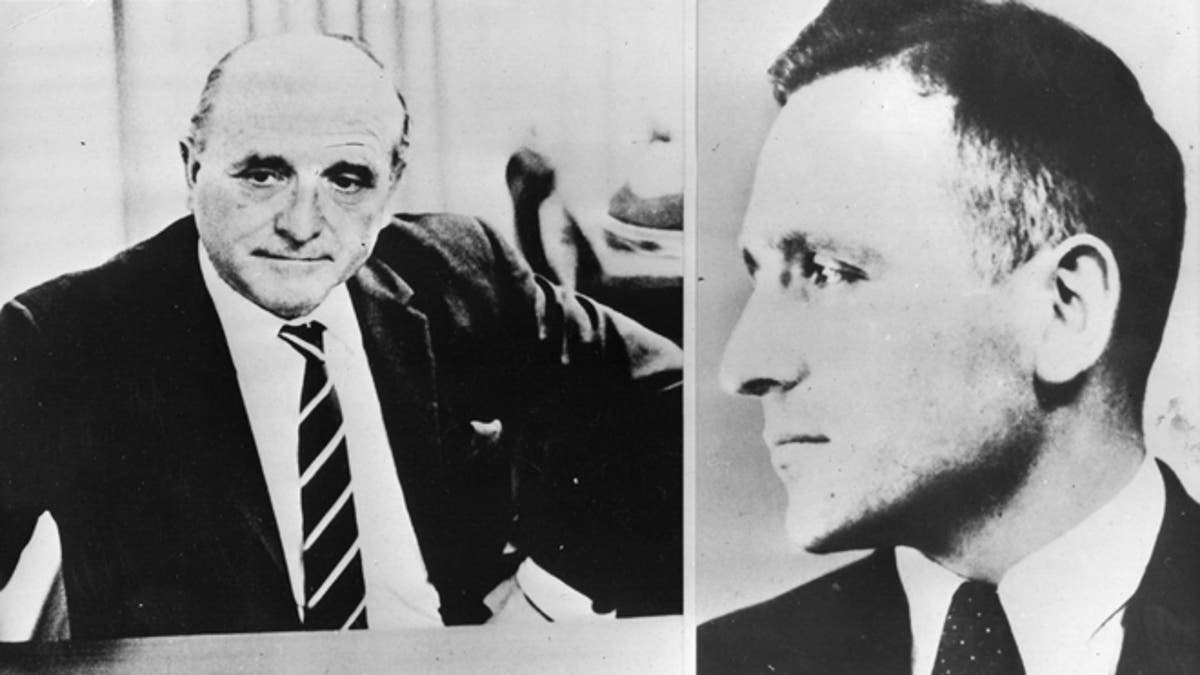
Klaus Barbie, a Gestapo officer known to history by the more brutal moniker “the Butcher of Lyon,” fled to Latin America in the mid-1940s with the help of western intelligence agencies following the fall of the Third Reich. (Photo by Keystone/Getty Images)
What’s an out-of-work Nazi war criminal on the run from the long arm of the law to do for a living when hiding out in Latin America?
Go into the drug trade and hang out with Pablo Escobar, of course.
That’s exactly what Klaus Barbie, a Gestapo officer known to history by the more brutal moniker "the Butcher of Lyon," did after fleeing to Latin America in the mid-1940s with the help of western intelligence agencies following the fall of the Third Reich.
According to his memoirs and testimony from the son of the deceased Bolivian drug dealer Roberto Suárez, Barbie – known then by his adopted name of Klaus Altmann – regularly met with Suárez in the early 1980s and was also known as the key go-between man with Colombian drug lord Pablo Escobar.
Using the money generated by the cocaine trade, Barbie allegedly helped put the right wing dictator General Luis García Meza into power in Bolivia in 1980 amid fears that the Andean nation would become a communist state like Cuba, according to claims made in a new documentary.
- Best pix of the week
- Bolivians Take Skulls to Cemetery
- Bolivian grandmothers take to the handball court to stay healthy
- Texas officer who used stun gun on 76-year-old over expired inspection sticker fired
- Giant Nazi statue causing public relations nightmare for Uruguay
- 16 years later, ‘Paz Para Vieques’ still teaches powerful lesson
- Venezuelan man chops off his nose and gets face implant to look like Marvel Comic villain
- Mexican filmmaker Guillermo del Toro claims his country is on the verge of a ‘social apocalypse’
- Shirt featuring Nazi symbol recalled by Spanish company Mango after online outcry
- Jewish Group Says Venezuela’s Maduro Inciting Violence Against Jews Amid Gaza Conflict
- Syria’s refugees find a new home in Uruguay and throughout Latin America
- Spanish soccer player sporting ‘Hitler stache’ causes social media furor
- Florida Rep. Alan Grayson to vie for Rubio’s soon-to-be-vacant Senate seat
- Arizona Candidate Who Called Welfare Recipients ‘Lazy Pigs’ Loses Re-election Bid
"This is a core part of our film, the entanglement of Barbie in the so-called cocaine coup of García Meza," said filmmaker Peter Mueller, who was given Barbie’s handwritten memoirs by the war criminal’s lawyers. "Barbie was the link between the military, politicians and the drugs mafia of Roberto Suárez."
Mueller is part of directorial team who made "My Name is Altmann – the Second Life of a War Criminal."
García Meza, who since 1995 has been serving a 30-year prison sentence in Bolivia, has remained quiet about his purported dealings with Barbie.
In his memoirs, the Gestapo torture master admitted to personally torturing top French resistance operatives during World War II and is estimated to have been directly involved in the deaths of 14,000 people. Following the war, he was sentenced to death in absentia in France, but evaded capture until 1983, when Meza’s regime fell apart amid an international outcry over his involvement in drug trafficking and human rights abuses.
Part of the reason that Barbie was able to avoid arrest following World War II is that he escaped Europe with the alleged help of American intelligence and was working with Germany's BND intelligence agency. The CIA has not said whether or not the U.S. continued to support him while in South America.
"Embedded in a network of old Nazis, covered by Western intelligence agencies, he has an unmolested second career as a torture master, agent and swindler in the service of a brutal military dictator, ruthless drug barons and international arms dealers," Mueller said. "This is an astonishing and shameful facet of international postwar history."
Barbie eventually died of cancer in 1991, while serving a life sentence for his crimes committed in Lyon.
